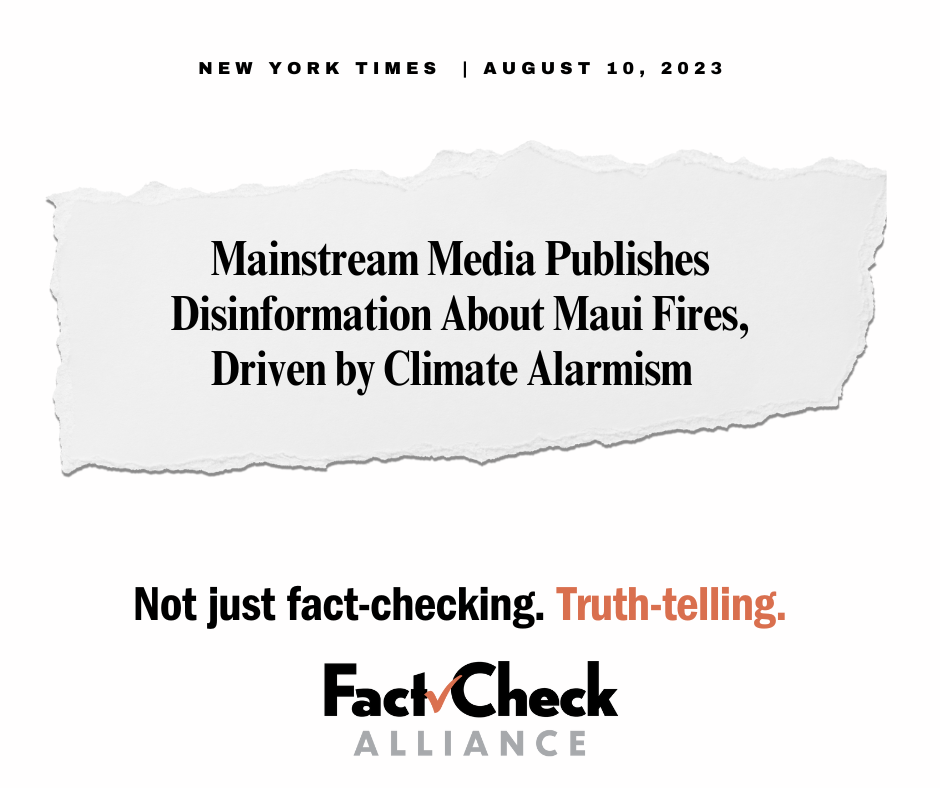Mainstream Media Publishes Disinformation About Maui Fires, Driven by Climate Alarmism
Climate change caused the fire that ravaged Hawaii, according to the New York Times. “Climate Change Turned Lush Hawaii Into A Tinderbox,” it reported. “The explanation is as straightforward as it is sobering: As the planet heats up, no place is protected from disasters.”
There’s indeed been a 31% decline in average yearly rainfall in Hawaii since 1990, according to researchers. The La Niña weather pattern, which usually leads to significant rainfall, has brought less precipitation over the last 40 years. Other changes are more difficult to tie to rising global temperatures, such as the fact that larger storms have been moving northward, resulting in less rainfall. Additionally, only 16% of Maui County, where most of the wildfires were burning, has been in severe drought, with another 20% in moderate drought.
But it’s been human-made changes to the landscape, including the reversion of former sugar cane farms, which had been irrigated, to invasive grasses, which are quick to ignite. “The landscape is just covered with flammable stuff,” one expert told the Times. “All of the conditions just came together.”
Researchers also found drops in power line voltage, which means that the lines were likely spraying sparks onto dry grasses. “It is unambiguous that Hawaiian Electric’s grid experienced immense stress for a prolonged time,” said one analyst. “There were dozens and dozens of major faults on the grid and any one of those could have been the ignition source for a fire.”
Hawaiian Electric also failed to clear flammable grasses from around electric wires. Over the last three years, the electric utility spent less than $250,000 on wildfire prevention. It had a plan, but failed to implement it, noted Lee Fang. The state utility commission allegedly dragged its feet on upgrades to Lahaina’s fire protection, “with a time estimate for wildfire protection upgrades starting this year and completed in 2027.”
A Hawaii state water official, named M. Kaleo Manuel, also delayed the release of water to landowners, who wanted it to prevent fires. “The water standoff played out over much of the day,” reported Stewart Yerton of Honolulu City Beat, “and the water didn’t come until too late.”
Given the complexity underpinning the causality of wildfires, particularly in Hawaii, it is not realistic to attribute the Maui fires to general global warming.
Read More:

